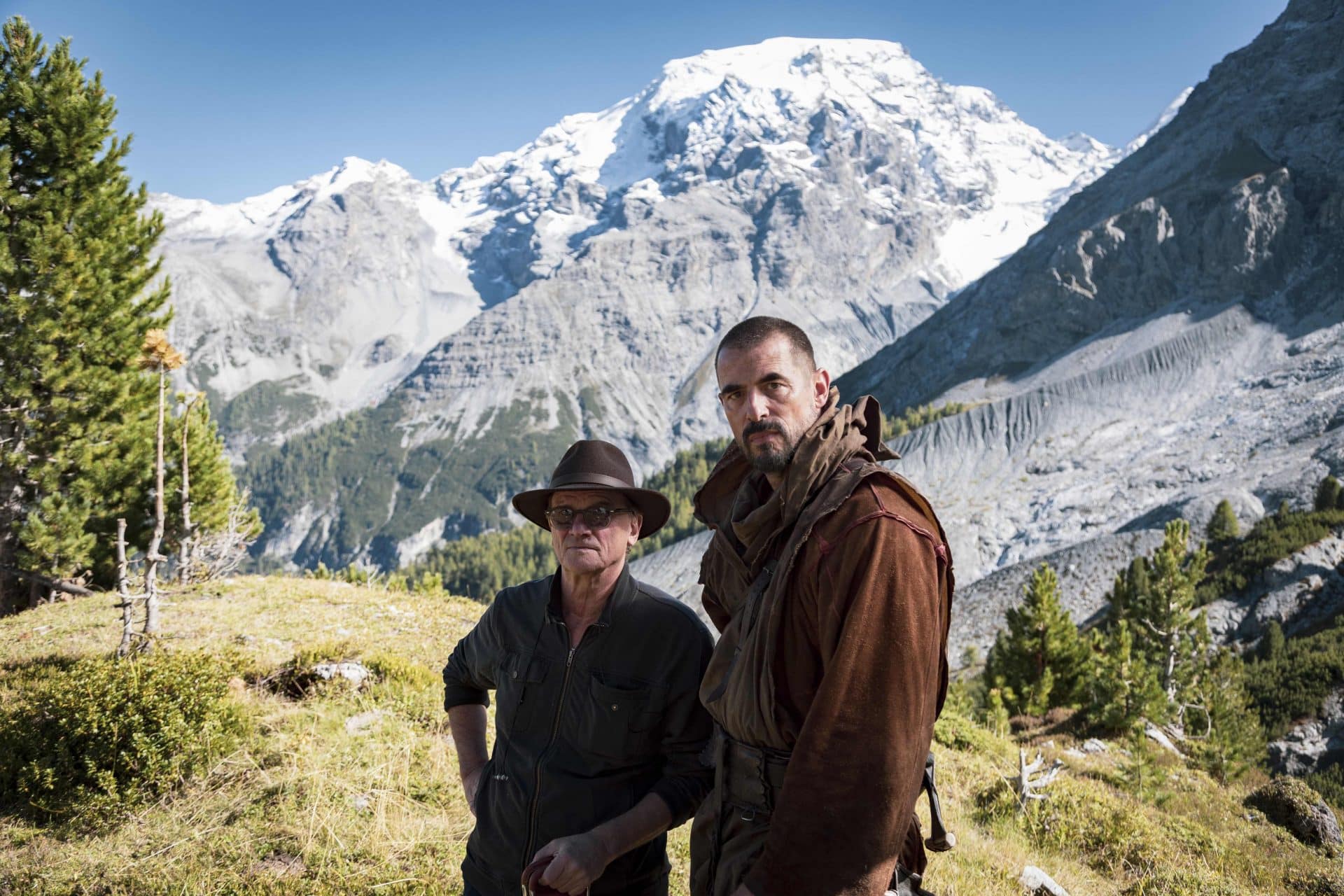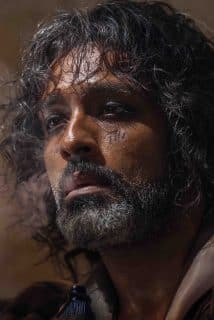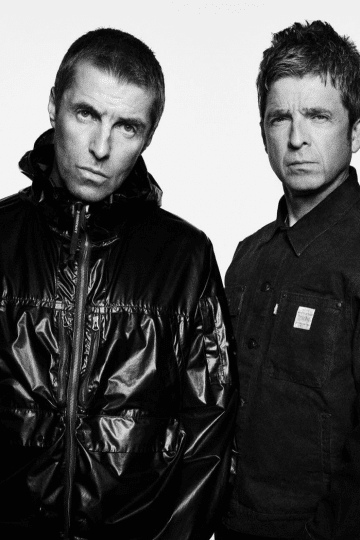William Tell: “The apple scene demonstrates political terrorism.”
Culture
Director Nick Hamm on bringing the legend of William Tell to the big screen, where it chimes exactly with our troubled times
William Tell is the kind of story that sticks in your head as a child and stays there forever. The mythic quality of the man who is forced to shoot the apple sitting upon his son’s head. That alone, as an image, is enough to make your palms sweat. But who is William Tell? And who forced him to take that shot with his crossbow?
Well, these blanks are filled in for our times with the new film, William Tell, with Claes ‘extremely attractive to everyone it seems’ Bang in the titular role. It colours in the legend of this national icon of Switzerland, a founding father who symbolised the fight for independence for the country from Austrian rule.
It is told that on 18 November 1307, the huntsman Tell refused to bow to Hapsburg officer Albrecht Gessler in a town square and was arrested. But Gessler offered him a chance at freedom if he could shoot an apple off his son’s head.
And in the hands of director Nick Hamm, we have a film that adds layers of meaning to a central incident which he frames as, “political violence.”
But he tells us that he has long had a fascination with William Tell, which included a familiarity with the 1804 drama written by playwright Friedrich Schiller.
“I worked in the theatre for a long time and was at the Royal Shakespeare Company. We worked and worked through the classical texts. Somebody did [Schiller’s] Mary Stewart occasionally but no one ever put on William Tell. And I was always fascinated by the idea that it was this European legend that had never been actually dramatised.
I remember as a kid, was going to black and white TV show [The Adventures of William Tell], and it was just fantastically entertaining. Then I discovered that Schiller had written this play, I remember reading it literally 20 years ago and going, wow, this is an extraordinary piece of work that speaks about political liberty, and that talks about the idea of how you attain it and how complicated it is.
Essentially, it was the politics of the piece that made me think this needs to be looked at in a different way, this needs to be a contemporary version of a legend that has existed for hundreds of years in European culture.
And I thought to myself if you don’t do that, you’re going to let someone else do it and they’re going to mess it up. So I thought I’m going to do it and I’ll mess it up in my own way.”
Well he hasn’t messed up the resultant film, which vibrates with purpose while still bringing the historical epic fun. SAS Rogue Heroes’ Connor Swindells as Gessler, makes for an excellent baddie and the whole thing is down and dirty, unflinching. And Claes Bang, currently playing the rotter in Bad Sisters, makes for a pleasingly moody Tell who is initially reluctant to join the cause.
Hamm says of him, “Claes has a way of being silent on screen and a way of holding the presence on screen, which is very movie actor. Not all actors are movie actors. Some actors don’t work in that medium very well. But he’s one of those rare actors that can go between television, theatre and film.”
Of course it all hinges on the famous scene, which is as gripping a sequence of cinema as you’ll see all year.
“The apple scene itself is, for me, a demonstration of political terrorism.
It’s one man telling another man to publicly execute his child in a town square, to impoe his political and authoritarian ideas on that community. The whole story is about the idea of how a small, tiny community country can coexist next to an autocratic empire. So how prescient is that right now? How current is that in our world? How sad it is that this story still has a contemporary bloody relevance.
The story still does have contemporary parallels, what is the notion of political liberty? How do you attain it? What does it mean? And how do you fight for it when you’ve lost it? And what is the cost of fighting for political liberty?”
As for the actual filming of the scene, it was a big moment in every sense.
“There was probably two months prior to that of regular shoot rehearsals. And planning where the sun is going to be when we film. What the weather is going be like, how hot it will be. How many horses we can bring in. How many hundreds of extras.
With the actors we rehearsed as if we were doing one whole scene. I got all the actors together a couple of weeks before we shot it, so they could run the scene as a play. And that for them was a huge joy. They could each dynamically work on it without the cameras around. So that’s why the scene is dynamic. It has a power because the actors give it that power.”
I ask him whether he can enjoy it on set or whether as a director, he’s too caught up in the stress trying to get things done. He says that after all the years he’s been doing it, he’s learned not to get frustrated by the stops and starts and the elements, and that he tries to focus on capturing moments of performance:
“If you’ve cast it right, the actors themselves will elevate whatever you’re doing, way beyond what you had in your head. There’s nothing greater than the buzz when you’re a director of looking through that lens and watching an actor’s performance, knowing that you’ve got it.
If I see that I haven’t got it, I won’t leave the scene. And I will talk to an actor in such a way that I let them know that when I start working with them. That gives them a huge sense of support and freedom. Then they know trust that exists between the two of us. I’m not there to shoot a schedule, I’m there to shoot your moment. And if I get your moment of tears or your moment of laughter or your moment of violence, if I get it on celluloid, it’ll last forever.”
Before he goes, I ask Hamm what he thinks the future of film will look like, and his words may send a shiver down your spine or, perhaps, simply make perfect practical sense:
“Let’s be honest, the AI generated images of actors is going to be part of thing. If it’s come this far in six months, what is it going to do in six years? And what is it going to do in 60 years? I predict a future where you’re going to watch movies with real actors, and watch movies with avatars. Let’s just use Leonardo DiCaprio as an example, the avatar of Leo will cost you six million but the real Leo will cost you 25 million. Right? Star actors will sell their image, and you’ll watch movies with both.”
For now though, films are still predominantly real, and there’s certainly a tactile realism to William Tell that makes it irresistible. Hamm says, “The movie is a ride from beginning to end and it should give you a great experience as well as making you think a little bit about what the hell is going on in our world.”
William Tell is in cinemas now.
Trending

Join The Book of Man
Sign up to our daily newsletters to join the frontline of the revolution in masculinity.

















